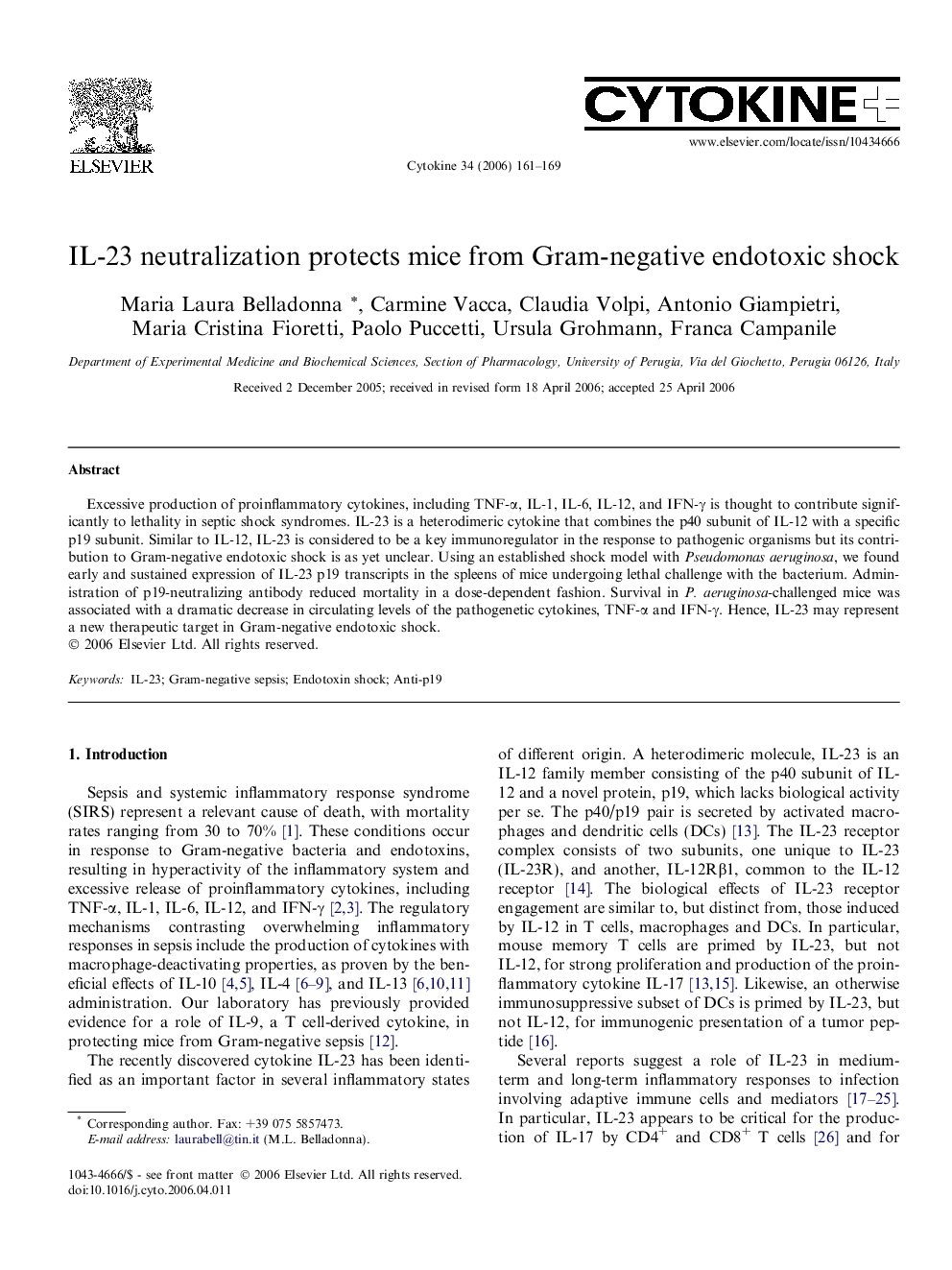| Article ID | Journal | Published Year | Pages | File Type |
|---|---|---|---|---|
| 2796033 | Cytokine | 2006 | 9 Pages |
Excessive production of proinflammatory cytokines, including TNF-α, IL-1, IL-6, IL-12, and IFN-γ is thought to contribute significantly to lethality in septic shock syndromes. IL-23 is a heterodimeric cytokine that combines the p40 subunit of IL-12 with a specific p19 subunit. Similar to IL-12, IL-23 is considered to be a key immunoregulator in the response to pathogenic organisms but its contribution to Gram-negative endotoxic shock is as yet unclear. Using an established shock model with Pseudomonas aeruginosa, we found early and sustained expression of IL-23 p19 transcripts in the spleens of mice undergoing lethal challenge with the bacterium. Administration of p19-neutralizing antibody reduced mortality in a dose-dependent fashion. Survival in P. aeruginosa-challenged mice was associated with a dramatic decrease in circulating levels of the pathogenetic cytokines, TNF-α and IFN-γ. Hence, IL-23 may represent a new therapeutic target in Gram-negative endotoxic shock.
